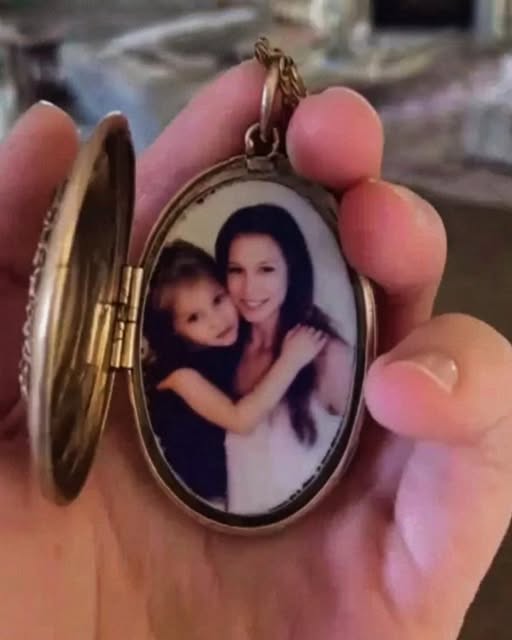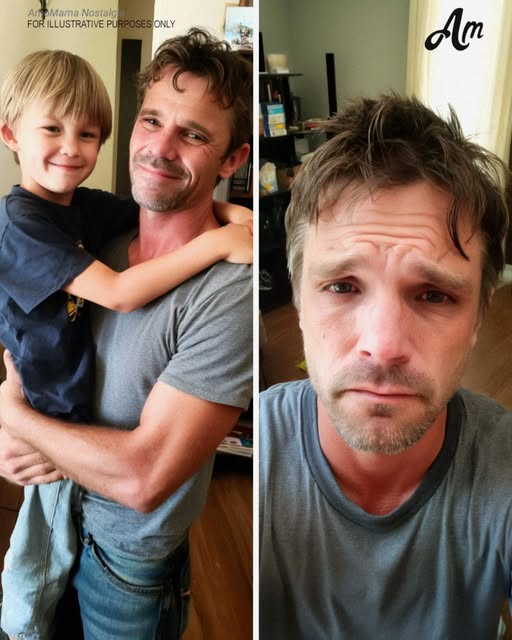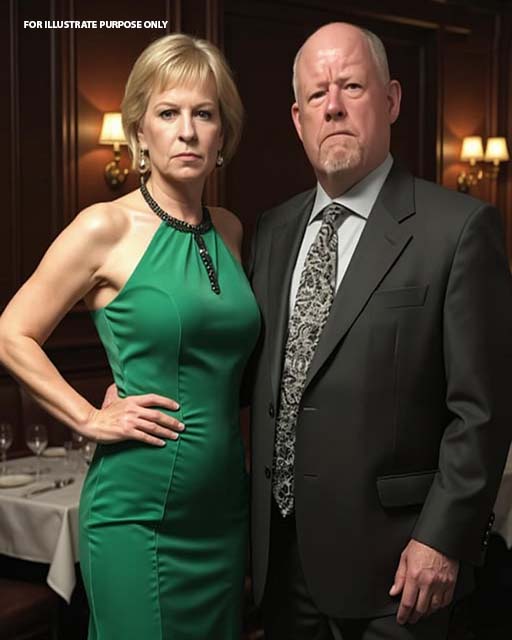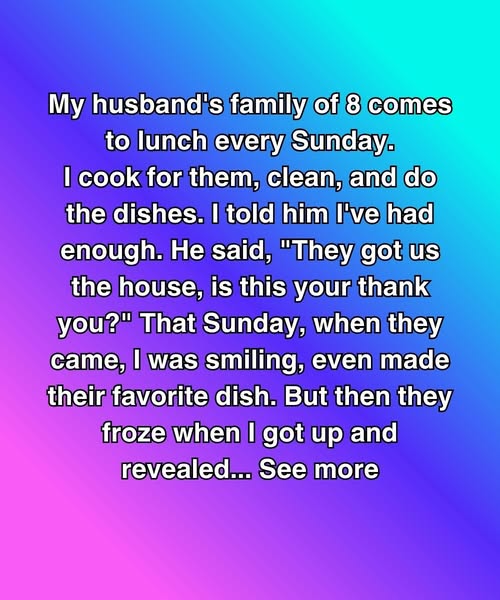I was sixteen the night my father finally heard the truth—every sharp word, every sneer, every time my stepmother tried to scrape my mother’s memory off the walls. By then, I’d learned to carry grief the way you carry a secret: close to the skin, where it can’t be snatched.
When I was ten, my mom, Nora, pressed a small velvet box into my palm. Inside was a silver locket etched with a tiny forget-me-not. She fastened it at the nape of my neck with trembling fingers and whispered, “When you touch this, you’ll find me.” On one side, a photo of us at the county fair: me with cotton candy teeth and my parents laughing like the sun. On the back, her handwriting, small and certain: Carry me into your tomorrows. – N.
A few months later, cancer finished what it came to do. The house sounded different after—like the air had stopped humming. Dad walked around like the lights were on but no one was home. When he met Helen two years later, he started laughing again, the careful kind of laugh people make when they’re practicing. She was crisp and polished, the sort of woman who never has a hair out of place. “We’ll make our own kind of home,” she said brightly, rolling in suitcases that smelled like department stores. I wanted to give her a chance for his sake.
At first, she was all chamomile tea and tight smiles. Then came the small digs, like paper cuts you don’t notice until salt finds them. If I spilled milk: “Your mother clearly never taught you any grace.” If I wore one of Mom’s cardigans: “So out of date, just like her taste.” She saved her sharpest for the locket. “Clinging to the past isn’t healthy for a growing girl,” she’d purr, eyes fixed on my hand when it drifted to the chain at my throat.
Her mother, Karen, visited often and was worse—a mirror polished cruel. They made a sport of me, trading smirks across the table, their laughter like erasers. Dad never saw it; he was either at work or walking into a room right as Helen slipped her mask back on. When I tried to tell him, she was ready with the soft voice and careful concern. “She’s still grieving, Paul. She hears criticism where I’m guiding.” He rubbed his temples and asked me to try. So I learned to tuck the locket under my shirt, the way you shield a flame from wind.
On Dad’s birthday, the house looked like a magazine. Crystal gleamed. China winked. The guests were friends of his who remembered mom with warmth and pretended not to see the mismatched family we’d become. I helped carry out trays and tried to be invisible. Somewhere between the salads and the roast, my fingers found the cool oval beneath my sweater—habit, anchor, prayer.
Helen saw. Of course she did.
“That ugly necklace again,” she said, smiling with her teeth. “Take it off before people notice. Do you want them thinking we’re a charity case?”
Karen’s voice slid in like a blade. “Trashy little trinket from a dead woman. Stop embarrassing us.”
Heat slammed into my face. Something inside me, something that had been kneeling for years, stood up. I lifted my chin and let my voice carry.
“This is my mother’s locket,” I said. “I’m not taking it off.”
Conversation died. Forks stilled. For a beat, all you could hear was the clock in the hall and the sound of my own heart.
Helen’s smile wobbled, then hardened. “Technically, I’m your mother now,” she said lightly. “I’ve done more for you in four years than she managed in ten.”
Karen nodded, delighted. “Exactly. Show some gratitude to the woman who actually takes care of you.”
The words hit and hit, but they didn’t land. I was bracing for impact when a deeper voice cut through the room.
“Enough.”
Dad stood in the doorway, birthday cake balanced in his hands, the candles stuttering in the draft. He looked like a storm walking.
“Insulting my daughter and mocking my wife’s memory is your idea of a discussion?” he said, and his voice had an edge I’d never heard before.
“Paul,” Helen started, laugh-paper thin, “we were just—”
“Don’t.” He set the cake down, stepped to my chair, and put a steady hand on my shoulder. “Don’t you dare speak Nora’s name like that. Not in this house. Not ever again.”
Karen tried to rally, chin lifted. “You’re being unreasonable—”
He opened the front door. “Get out.”
Silence stretched until it snapped. Chairs scraped. Heels clicked. The door slammed hard enough to rattle the frames on the wall, and just like that, the oxygen in the room shifted. The guests looked everywhere but at us, embarrassed for having watched. Dad exhaled like he’d been holding his breath for years, then knelt so we were eye to eye.
“I’m sorry,” he said. “I should’ve listened sooner. It won’t happen again.”
It wasn’t a grand speech, but the ground under me steadied. He poured wine, raised his glass, and somehow salvaged the evening with the simplest truth. “Tonight was supposed to be about me,” he said. “But the person I’m most proud of is my daughter—who carries her mother’s light every day.”
I didn’t tuck the locket under my sweater. I let it shine, right where Mom placed it.
In the days that followed, Helen tried to edge back in with texts and careful apologies that read like PR statements. Dad didn’t budge. The house got quieter in a different way, the kind that feels like peace settling on furniture. I started braiding my hair the way Mom used to and burned a batch of lemon bars on purpose just to fill the kitchen with that smell again. Sometimes, grief is a room you keep visiting so the memories don’t dim.
People talk about stepparents like a coin toss—saint or villain—but the truth is messier. Helen wanted a house she could stage, a family she could arrange, and a past she could box up. She didn’t get any of it. In trying to erase my mother, she erased herself. And in the wreckage of that attempt, I found my voice.
I still reach for the locket when I’m anxious. It’s a habit I don’t plan to break. When the chain glides under my fingers, I hear Fleetwood Mac on a Sunday morning. I see flour on an apron and a daisy tucked behind an ear. I feel a hand press the locket against my chest and whisper, “You’ll find me.”
I do. Every time.




